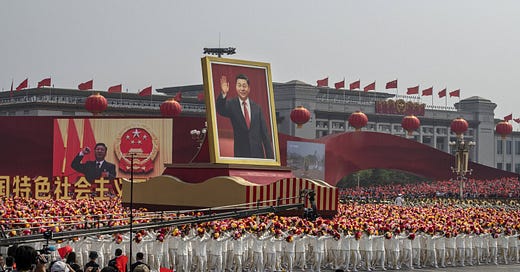The Illusion of Chinese Strength: Power, Paranoia, and the Temptation of War
Time is not on China’s side. That makes the next decade the most dangerous. An in-depth look.
by Rod D. Martin
April 3, 2025
The world sees a rising China. The truth is very different. Beijing is building aircraft carriers, threatening Taiwan, investing across Africa and Latin America, and attempting to dominate critical global supply chains. The Western, anti-American press echoes this posture as a sign of an ascendant superpower on the verge of displacing the United States.
But this is not how China sees China.
From Beijing’s point of view, time is not on their side. The Communist Party is staring down a demographic collapse, an economic slowdown, a decoupling from Western capital and technology, and rising regional resistance led by an increasingly assertive Japan and India. Internally, they fear their own people. Externally, they fear encirclement, which America has largely achieved. For all the headlines about aggression, China’s behavior is ultimately defensive.
That’s exactly what makes it dangerous. China needs to grab what it wants while it still can. And the clock is ticking.
China is indeed strong. But it is also brittle. And brittle powers are the most likely to lash out.
Geography and Insecurity
China’s historical condition is not dominance. It is fear. The Han heartland is a river civilization boxed in by deserts, mountains, and steppe. Most of China’s history has been spent defending itself from foreign invaders: Mongols, Manchus, Japanese. Unlike the United States, protected by two oceans and weak neighbors, China has always been geopolitically exposed.




